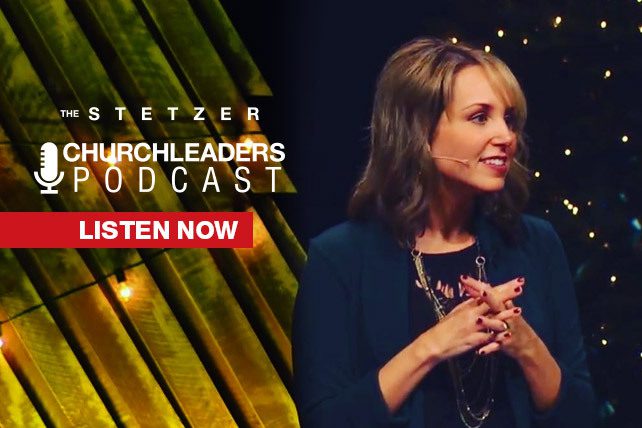Aubrey Sampson serves on the teaching and preaching team at Renewal Church in West Chicago, which she co-planted with her husband, Kevin. She speaks at churches and events around the country, writes regularly for Christine Caine’s Propel Women and is the author of three books: “Overcomer,” “The Louder Song,” and her latest, “Known: How Believing Who God Says You Are Changes Everything.”
Other Ways to Listen to This Podcast With Aubrey Sampson
► Listen on Apple
► Listen on Spotify
► Listen on Stitcher
► Listen on YouTube
Key Questions for Aubrey Sampson
-Why do we accept certain labels for ourselves, whether true or false, and how do the names we live by impact our lives?
-It’s easy to read the Bible and agree that God loves us and sees us as worthy, yet still go through life believing lies about ourselves. How can we actually take what God tells us to heart?
-How does Jesus show us how to live out of our true identity, rather than a false one?
-How can understanding they are known by God impact ministry leaders, and what are the dangers if they do not grasp this truth?
Key Quotes From Aubrey Sampson
“I was seeing two simultaneous things happen, at least here in evangelical America. One, this just intense pressure to build a ministry and professionalize our calling and get influence.”
“It feels like there’s a lot of pressure to build towers unto our own name. And I feel that pressure as much as anybody else does.”
“We’re in pastoral ministry ministering to so many Christians who are walking around like with their heads hanging low because they really don’t know this very basic, foundational truth that God loves them and God is for them.”
“Let’s remember that God is good. God is for us. And then to let’s also remember why we’re here, and that is for the name and renown of Jesus and for the flourishing of others, not for our own names.”
“We tend to go to other people or other people, groups or affiliations or tribes or you name the category, and we go, ‘OK, I’m going to put myself on that group’s or that person’s scale, and I’m going to say, ‘You tell me I’m worthy. You name me, you tell me who I am.’”

